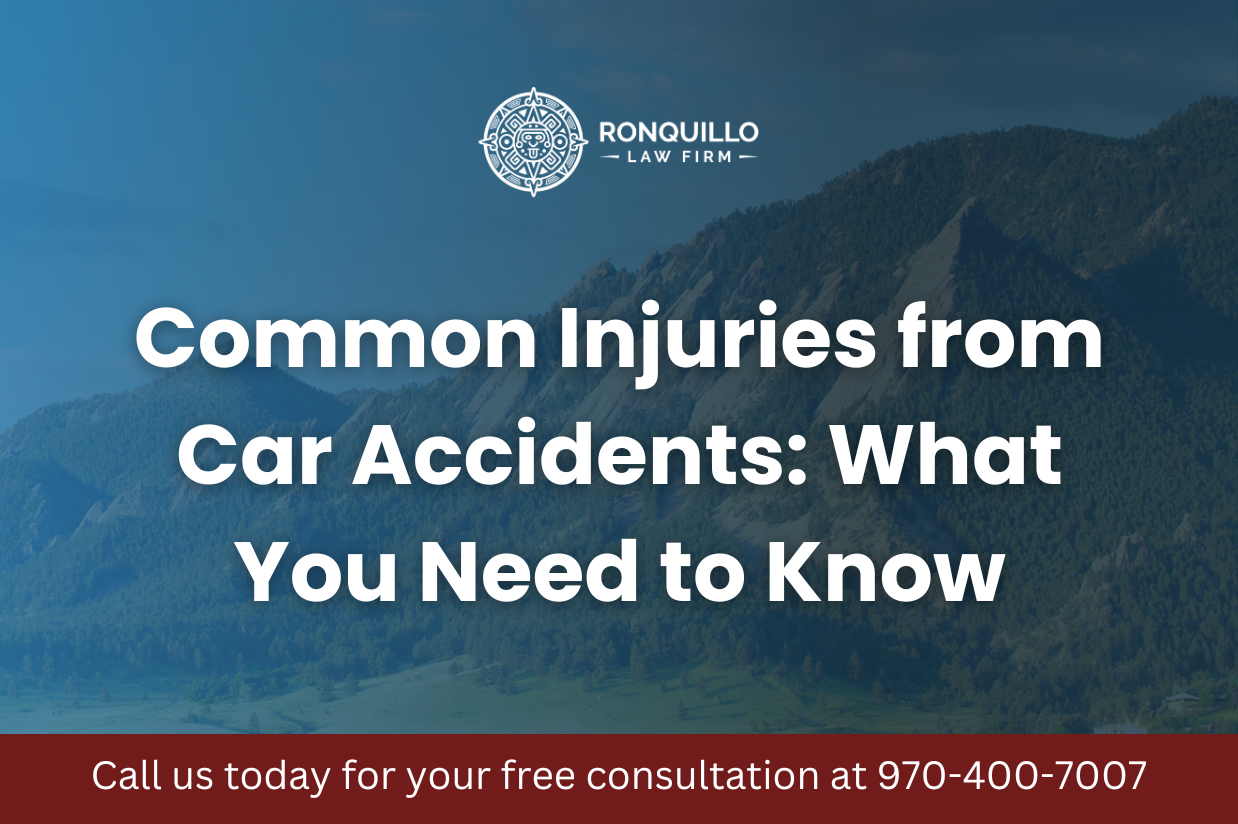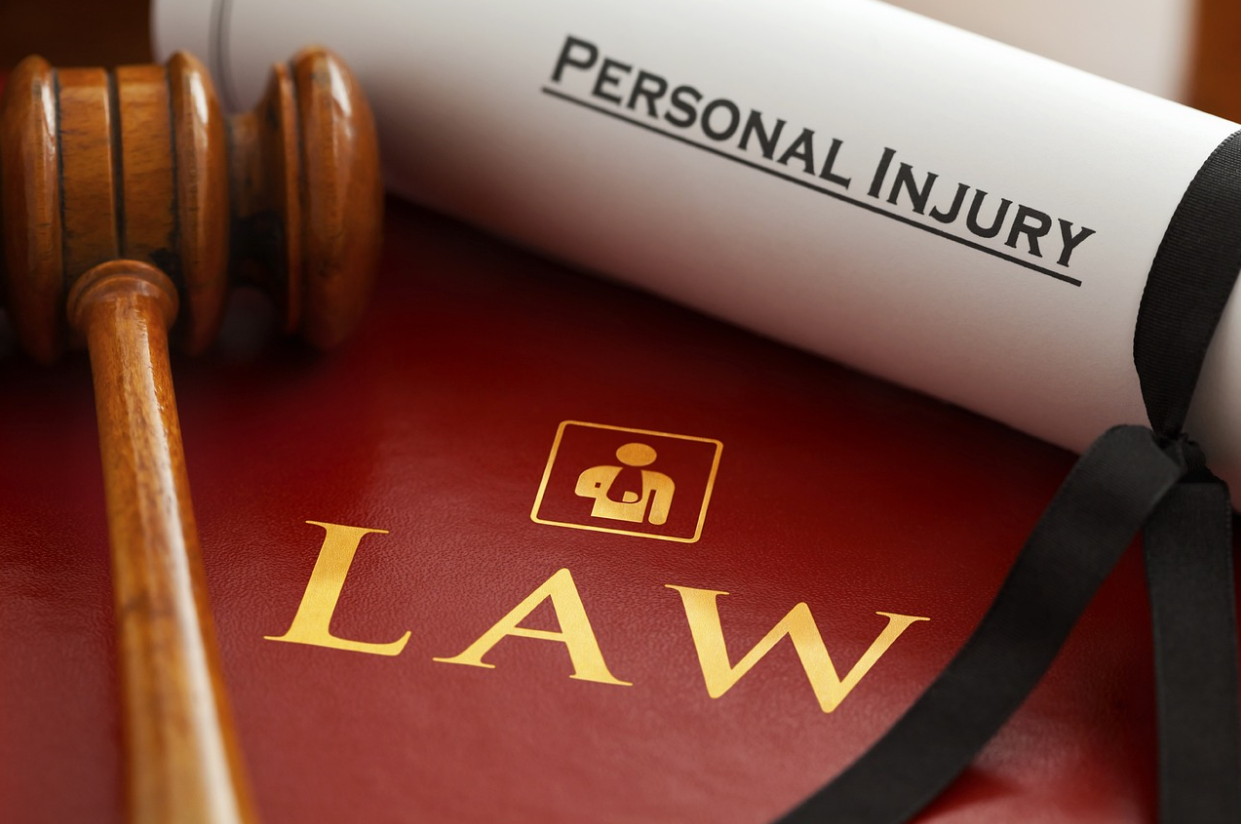Every year, millions are affected by injuries from car accidents, ranging from minor bruisesto serious, life-altering conditions. Understanding these injuries, their implications, and the steps to take thereafter can significantly impact the recovery process both physically and financially. This knowledge not only aids in navigating the aftermath of an accident but also underscores the importance of safety precautions and the role of legal assistance from experienced personal injury lawyers in certain situations.
This article will guide you through the most common injuries in car accidents, including whiplash and neck injuries, traumatic brain injuries (TBI), spinal cord injuries, broken bones and fractures, soft tissue injuries, and psychological injuries such as post-traumatic stress disorder. Additionally, we will provide insight into the importance of seeking immediate medical care and legal advice from a qualified car accident lawyer to ensure your rights are protected and you are fairly compensated for your injuries.
Whiplash and Neck Injuries
What is Whiplash?
Whiplash is a common neck injury often experienced in car accidents, particularly during front-end or rear-end collisions. This injury occurs when the neck undergoes a forceful, rapid back-and-forth movement, resembling the cracking of a whip. It primarily affects the soft tissues, including the muscles, disks, nerves, and tendons in your neck. Whiplash can vary in severity, and its impact can be exacerbated by the neck moving beyond its typical range of motion, resulting in sprains or strains.
Symptoms of Whiplash
The symptoms of whiplash may appear immediately or could take several hours to several days to manifest. Common symptoms include neck stiffness and pain, difficulty moving your neck, headaches, and dizziness. You may also experience numbness or tingling in your arms, muscle spasms, or even more severe neurological symptoms such as vision problems and trouble swallowing. The intensity of these symptoms often reflects the severity of the injury.
Long-term Effects of Neck Injuries
While many individuals recover from whiplash within a few weeks to months, some may experience prolonged symptoms leading to chronic pain or even permanent disabilities. The long-term effects can include ongoing neck pain, reduced mobility, and in severe cases, neurological impairments. These complications can significantly impact quality of life, sometimes necessitating long-term treatment and therapy.
Whiplash and neck injuries from car accidents can have a substantial impact on your health. Immediate and appropriate treatment is crucial to manage symptoms and prevent long-term complications.
Lesiones cerebrales traumáticas
Types of TBI
Traumatic Brain Injuries (TBIs) result from either a blunt force hitting the head or an object penetrating the skull. Blunt TBIs, also known as closed head injuries, occur when there is no penetration through the skull but the brain is injured by rapid movements or impacts within the skull itself. These injuries can cause the brain to twist or bounce, leading to significant damage. Penetrating TBIs, on the other hand, involve objects breaking through the skull and directly harming brain tissue. These injuries are often more severe and can be caused by shrapnel, bullets, or other sharp objects during an accident.
Symptoms of TBI
The symptoms of TBI can vary significantly depending on the severity of the injury. Mild TBIs, often referred to as concussions, can result in symptoms such as headaches, dizziness, confusion, and changes in sleep patterns. Moderate to severe TBIs may lead to prolonged unconsciousness or amnesia, worsening headaches, seizures, and clear fluid draining from the nose or ears. Cognitive, behavioral, and physical symptoms can persist long after the injury, affecting everything from motor skills to emotional regulation.
Treatment for TBI
Immediate medical assessment and treatment are crucial for TBIs. Mild TBIs might only require rest and monitoring for any progression of symptoms. However, moderate to severe injuries often need emergency treatment to ensure the patient maintains adequate oxygen and blood supply to the brain. This might include medications to prevent seizures or surgeries to relieve pressure on the brain or repair skull fractures. Long-term rehabilitation may be necessary to help patients regain function and learn to manage daily activities. This can involve a variety of therapies such as physical, occupational, and speech therapy, along with psychological support to address cognitive and emotional challenges.
Traumatic Brain Injuries are complex and can impact every aspect of a person’s life, making prompt and effective treatment essential for recovery and quality of life.

Lesiones de la médula espinal
Types of Spinal Cord Injuries
Spinal cord injuries (SCI) from car accidents can be categorized as either complete or incomplete. A complete SCI results in a total loss of motor and sensory functions below the injury site, while an incomplete SCI may retain some level of functioning. Common specific injuries include whiplash, herniated discs, and spinal fractures, which can vary significantly in severity and impact.
Consequences of Spinal Cord Damage
The consequences of SCI are profound, affecting motor functions, sensory perception, and even basic physiological processes. Victims may experience paralysis, such as paraplegia or quadriplegia, depending on the injury’s location on the spinal cord. Complications can include difficulty breathing, loss of bowel and bladder control, and changes in sexual function. Moreover, the psychological impact can be significant, often leading to conditions like depression and post-traumatic stress disorder.
Recovery and Rehabilitation
Recovery from a spinal cord injury is a long-term process that typically involves a combination of medical treatment and rehabilitation. Early intervention and ongoing rehabilitation can significantly affect the extent of recovery. This process may include physical therapy, occupational therapy, and the use of assistive devices to improve mobility and independence. Rehabilitation aims to enhance the quality of life and independence of SCI patients, helping them adapt to life changes and regain as much function as possible.
Broken Bones and Fractures
Common Bone Fractures in Car Accidents
Car accidents can lead to a variety of broken bones, each varying in severity and recovery process. Commonly affected bones include the femur, tibia, fibula, and ribs, often resulting from high-impact collisions or crush injuries. The clavicle, or collarbone, is particularly susceptible due to its location across the seatbelt path, making it prone to break under sudden forward momentum. Facial and skull fractures are also notable, especially when the head makes contact with parts of the car interior like the dashboard or steering wheel.
Treatment for Broken Bones
Immediate and appropriate treatment is crucial for broken bones. Depending on the fracture type—whether it’s a simple break or a more complex injury like a comminuted or compound fracture—treatment options may vary. Common interventions include immobilization with casts or splints and, in severe cases, surgical procedures using screws, plates, or rods to stabilize the fracture. For compound fractures, where the bone pierces the skin, surgery is typically urgent to prevent infection and ensure proper healing.
Recovery Time for Fractures
The healing time for bone fractures can range significantly based on the fracture’s severity and the individual’s overall health. Most simple fractures heal within six to eight weeks, but more complex breaks or those involving major bones like the femur or pelvis may take longer. Physical therapy is often required to regain full function and strength in the affected area, helping individuals return to their daily activities. Additionally, maintaining a healthy diet and avoiding substances like tobacco can significantly aid the recovery process.
Soft Tissue Injuries
Types of Soft Tissue Injuries
Soft tissue injuries from car accidents encompass a range of conditions affecting the skin, connective tissue, fat, tendons, blood vessels, ligaments, and muscles. Common types include sprains, which involve overstretched ligaments, and strains, which are injuries to the tendons or muscles often occurring in the lower back. Contusions, or bruises, result from forceful impacts causing blood vessel damage and blood leakage into surrounding tissues. Lacerations, or cuts, can range from minor to severe, requiring stitches or surgery.
Symptoms of Soft Tissue Damage
The symptoms of soft tissue injuries can vary but often include swelling, pain near the injury site, redness, and bruising. Muscle weakness is also a common indicator of soft tissue damage. These symptoms can arise from the traumatic force exerted during car accidents, which can cause occupants to be violently jolted or thrashed around.
Treatment Options
Treatment for soft tissue injuries depends on the severity and type of injury. The RICE method (Rest, Ice, Compression, Elevation) is widely used for managing sprains, bruises, and other mild injuries. Anti-inflammatory medications are often prescribed to reduce swelling and alleviate pain. In more severe cases, physical therapy may be recommended to improve range of motion and strengthen the affected areas. For complete tears or significant damage, surgical interventions may be necessary to repair the tissue.
Psychological Injuries
Following a car accident, you may experience a range of psychological injuries that can profoundly impact your daily life and mental health. Here’s what you need to know about the most common psychological conditions resulting from car accidents, including Post-Traumatic Stress Disorder (PTSD), anxiety, depression, and the importance of seeking mental health support.
Post-Traumatic Stress Disorder (PTSD)
PTSD is a severe anxiety disorder that can develop after exposure to any event that results in psychological trauma. This disorder is characterized by long-lasting symptoms such as re-experiencing the traumatic event through flashbacks or nightmares, avoidance of situations that bring back memories of the trauma, heightened reactivity to stimuli, anxiety, and significant mood swings. Recognizing these symptoms is crucial for timely and effective treatment.
Anxiety and Depression after Accidents
The emotional toll from car accidents can manifest as anxiety and depression. These conditions might present as persistent sadness, loss of interest in enjoyable activities, or excessive worrying about everyday matters, significantly impairing your ability to function normally. It’s important to understand that these reactions are common and treatable with appropriate therapeutic support.
Seeking Mental Health Support
Addressing your mental health after a car accident is vital. Engaging with a mental health professional can provide you with the necessary tools to manage your distress. Therapies like Cognitive Behavioral Therapy (CBT), Eye Movement Desensitization and Reprocessing (EMDR), and medication are effective in treating accident-related psychological symptoms. Additionally, support from friends and family can play a critical role in your recovery by providing emotional support and understanding.
Understanding and addressing these psychological injuries is essential for recovery and returning to your normal life. Early intervention can prevent long-term mental health issues and help you regain a sense of control and well-being.
Conclusion
Through the exploration of common car accident-related injuries, ranging from the immediate physical to the enduring psychological, this article underscores the crucial importance of immediate and appropriate response for the sake of recovery and quality of life. By highlighting the significant impact of injuries such as whiplash, traumatic brain injuries, spinal cord damage, broken bones, soft tissue damage, and psychological traumas, we’ve delineated not only the path to physical rehabilitation but also the journey toward mental recuperation. These insights serve to inform and prepare individuals on the necessity of prompt medical and legal intervention following an accident.
Understanding the depth and breadth of potential car accident injuries equips individuals with the knowledge to advocate for their health and rights effectively. If you or someone you know is navigating the complexities of recovery post-accident, remember that legal support can be as paramount as medical intervention in ensuring a comprehensive recuperation. As part of moving forward, call the Ronquillo Law Firm today for a free consultation, ensuring that every aspect of your recovery is managed with the expertise it demands. Empowered with this essential knowledge, individuals affected by car accidents can pave their path toward healing with confidence and support.
FAQs
Whiplash is the most common injury in car accidents. It occurs when the head is abruptly forced forward and then back, causing the neck to snap similarly to the cracking of a whip. Whiplash can lead to damage in the neck’s ligaments, tendons, facet joints, discs, and muscles.
At the scene of an accident, the three critical steps are: protecting the area to prevent further accidents, notifying the authorities, and providing care to the injured.
If injuries occur from a car accident, the foremost priority should be to seek medical attention. Visiting a doctor or the emergency room right away is crucial for your health.
When an accident occurs, it’s important to gather the following information: license plate numbers and vehicle identification numbers, driver’s licenses and vehicle registrations of all parties involved to confirm their validity, and the names, addresses, and phone numbers of all passengers and witnesses.


